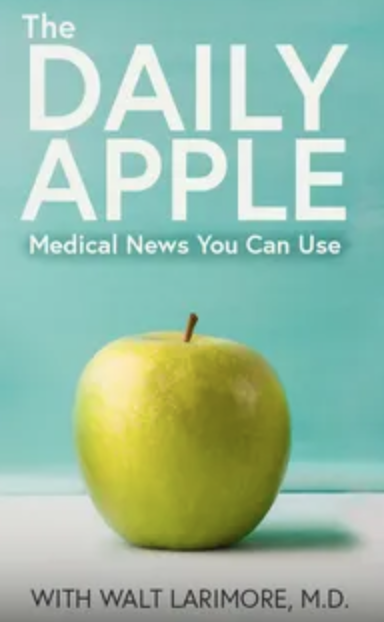
Ask Dr. Walt 22 – The Impact of Spiritual Health on General Health
October 9, 2023
Apple a Day 007 – Disturbing overlaps between Long COVID and Alzheimer’s disease
October 13, 2023One of the readers of Today’s Christian Living, a bi-monthly magazine for which I write a “Ask Dr. Walt” column, asked, “Is vitamin-enhanced water healthy?”
Answer: Vitamin waters and other electrolyte drinks are increasingly popular among many consumers. The global market for them was $7.2 billion in 2021 and has been predicted to reach $11.9 billion by 2027.
Nevertheless, many nutritionists are concerned about the presence of too much sugar in the drinks and recommend keeping several considerations in mind before stocking up on too much vitamin water.
For those not in the know, vitamin water is made up of water mixed with minerals and vitamins such as A, C, and several B vitamins. Popular versions are often infused with electrolytes.
They come in a wide variety of flavors and quite often are sweetened with sugar or other natural or artificial sweeteners.
The CDC warns against consuming too many “added sugars” because they are known to contribute to obesity, type 2 diabetes, heart disease, and premature death.
In a recent interview with USA Today, Walter Willett, MD, professor of epidemiology and nutrition at Harvard T. H. Chan School of Public Health, said, “Most of the commercial vitamin waters contain sugar or other sweeteners that can be harmful.”
Willett pointed to one analysis which found that one of the most popular brands of vitamin water contained “the same amount of fructose as a bottle of (Coca-Cola).”
Willett also noted that they are “a very expensive way to get vitamins.”
He and his colleagues recommend drinking plain water instead.
The bottom line on vitamin waters is that if they are consumed infrequently and sparingly, they aren’t likely to cause harm, but they probably do not provide any health benefit on their own.
You can read the entire September 2023 “Ask Dr. Walt” column here.
© Copyright WLL, INC. 2023. This blog provides healthcare tips and advice that you can trust about a wide variety of general health information only and is not intended to be a substitute for professional medical advice, diagnosis, or treatment from your regular physician. If you are concerned about your health, take what you learn from this blog and meet with your personal doctor to discuss your concerns.




